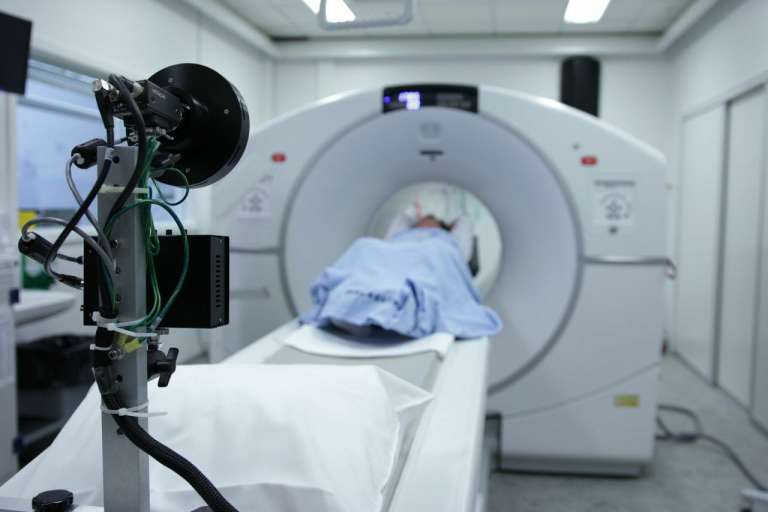At the peak of the pandemic, in April, we wrote about the difficulty of lockdown for those who are survivors of brain injuries, and their families. Headway, the brain injury association, have now released a report on the impact of lockdown for brain injury survivors and their families.
Lockdown has been difficult for many; but the difficulties are compounded for those living with a brain injury.
Who Headway Surveyed
Headway surveyed a total of 1,140 people; 933 who have suffered a brain injury and 207 who live with, or care for those with brain injuries.
What the Survey Found About the Impact of Lockdown for Brain Injury Survivors
The survey affirmed the difficulty of lockdown for people who have suffered brain injuries and their families. It also shed light on specific areas, which policy makers could learn from in the event of another lockdown.
Rehabilitation and Support
Rehabilitation is crucial for someone who has suffered a brain injury. Particularly in the early stages, since good rehabilitation, early on, can negate some of the long term impact.
Despite this, 42% reported that their rehabilitation had been negatively impacted by lockdown. With 57% of respondents having suffered their injuries within the last two years, it’s reasonable to assume that this could have consequences beyond the pandemic. It continues to be a concern that some face-to-face rehabilitation will be limited, potentially for some time to come.
In addition to professional rehabilitation, half of respondents reported a loss of access to vital support.
Fear of their Future
62% of respondents reported increased fear of their future, due to lockdown. Worryingly, a similar survey by Headway in 2017 which showed only 28% had negative feelings about their future. Suggesting lockodwn has doubled this fear.
Psychological Well-Being
A significant proportion of respondents reported a deterioration in their mental health, due to lockdown. 63% reported an increase in anxiety; 53% a worsening of depression and 60% a negative impact on their mental well-being.
This is particularly concerning because the psychological impact of brain injury often overlaps with mental health conditions, making them harder to cope with.
Relationships
73% of those living alone reported increased loneliness. Whilst 70% of partners reported an increase in stress.
Although the impact on relationships generally was more balanced; with almost equal numbers reporting a negative impact (37%), as no impact (40%), only 20% reported a positive impact. Headway point out that context is important to understand the results. The effect of brain injury and pressures of caring can put relationships under a great deal of stress in ordinary circumstances.
51% also reported having less contact with family and friends.
Although lockdown restrictions are gradually being eased, Headway recognise that this will be a slow process. They stress that adequate support is now needed more than ever, to make up for the impact lockdown has had.
What Next
The report confirms the fears that those familiar with brain injury had going into lockdown; that it would be detrimental for those living with brain injuries. Hopefully the findings will help shape future policy to ensure that those living with brain injuries are not forgotten.
As Headway also allude to, COVID-19 has exposed a social care system that was already creaking at the seams. And things don’t look set to improve; only 4% of Directors of Adult Social Care being confident that their 2020/21 budgets are adequate to fulfil their statutory duties.
Headway, along with Pryers, back the Association of Directors of Adult Social Services’ calls for two-year ring fenced funding to fund adult social care.
We can all play our part by offering support to those who need it and by bringing attention to shortcomings.
Who are Headway
Headway are a UK based charity. They provide vital support and information to people who have suffered brain injuries, their families and carers.
They also promote promote understanding of all aspects of brain injury and campaign to reduce the incidence of brain injures.
Pryers’ Involvement with Headway
Pryers are familiar with the difficulties encountered by those living with brain injury. We have represented many clients who have sustained injuries as a result of personal injury and medical negligence incidents. 43% of the respondents to Headway’s survey had suffered their injury because of trauma, such as a road traffic accident.
As injury claim specialists, we are responsible for more than just ensuring our clients receive the appropriate financial compensation. We also ensure they receive the appropriate support and rehabilitation, as part of their compensation package.
For this reason, we are proud supporters of Headway – having seen the fantastic work they do first hand. Carmel Walsh, one of the Partners at Pryers even sits on the committee of their local branch in York.





